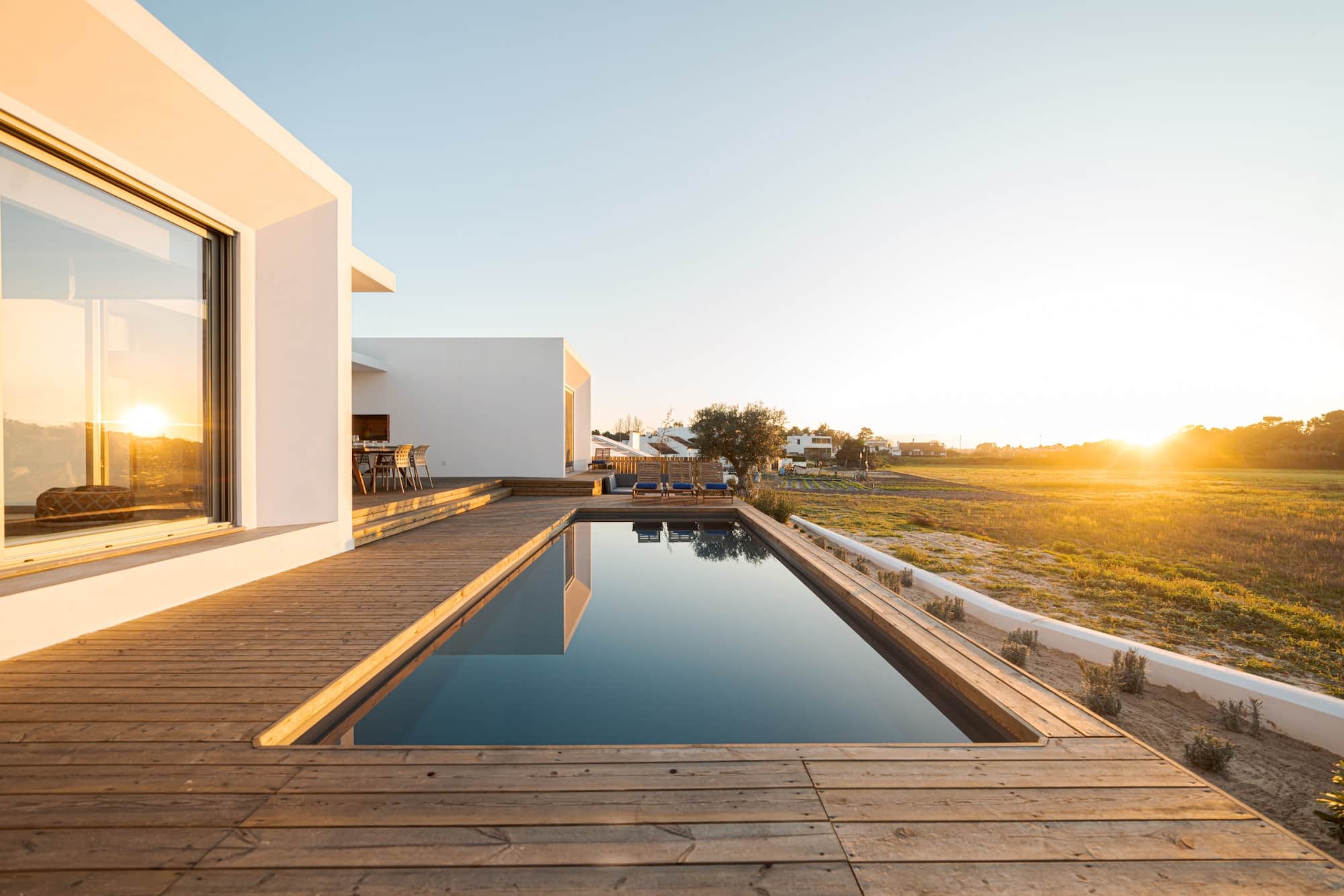How to Construct a Durable and Stylish Outdoor Deck from Composite Materials?

The outdoor spaces of homes are often underutilized. However, with a little creativity and craftsmanship, you can transform your backyard or patio into a personal paradise. One of the best ways to do this is by building a deck. Specifically, a deck made from composite materials. This article provides a comprehensive guide on how to construct a stylish, durable outdoor deck using composite materials.
Why Choose Composite Decking?
If you’re considering a deck, then there’s a good chance you’ve pondered over the question: Wood or composite? While traditional wood decks have their appeal, composite materials are the new gold standard in decking. But why should you opt for composite?
A lire en complément : How to Design a Fire-Resistant Landscaping Plan for Wildfire-Prone Areas?
Composite decking is a hybrid product made from a mixture of wood fibers, plastic, and a binder to hold it all together. This fusion creates a product that combines the best of both worlds: the natural aesthetic appeal of wood and the low-maintenance durability of plastic.
Unlike wood, composite materials are resistant to rot, warp, and insect damage. Plus, they don’t need to be stained or painted regularly. This low-maintenance feature makes composite decks a practical choice for homeowners who value aesthetics without the hassle of intensive care and maintenance.
A lire en complément : How to Create a Space-Saving Fold-Down Desk in a Tiny Bedroom?
Types of Composite Deck Boards
Once you’ve decided on composite decking, your next step is to choose the right composite deck boards. Remember that not all composites are equal, and the type you choose will significantly impact your deck’s overall performance and longevity.
The two main types of composite decking are uncapped and capped. Uncapped composite boards, the first generation of composite decking, are susceptible to staining and fading. On the other hand, capped composite boards are coated with a protective polymer shell, providing an extra layer of protection against the elements and daily wear and tear.
In addition to the cap, you will also need to consider the board’s material composition. Some boards are made from a PVC and wood mix, while others are entirely PVC. While the latter option is more resistant to the elements, it may not look as natural as the former.
Crafting a Deck Design: How to Plan Your Outdoor Space
Before you start purchasing materials and building your deck, you’ll need to plan your outdoor space meticulously. Consider how you intend to use your deck. Do you want a tranquil space for relaxation, or a lively area for entertaining guests? The intended use will influence your deck’s size, layout, and features, such as built-in benches or a fire pit.
Next, think about your deck’s shape and location. Try to design a deck that complements your home’s architecture and the surrounding landscape. It’s also crucial to choose a location with suitable ground conditions and access to sunlight.
Lastly, consider adding a deck railing. Not only does it provide safety, but it can also enhance the aesthetic appeal of your deck. Composite railings are a great choice as they match the deck and require minimal maintenance.
Building Your Composite Deck: Installation Tips
Now that you’ve chosen your materials and created a design, it’s time to build your deck. Even if you’re an experienced DIY-er, installing a composite deck can be challenging. Here are some tips to ensure a smooth installation process.
First, make sure you have the right tools. Composite decking requires specific screws and a power drill. You may also need a miter saw to cut the boards to the correct length.
Next, check the deck board’s installation instructions. Some brands have unique installation requirements, such as specific gap widths between boards.
Lastly, take your time. Rushing the installation process can lead to mistakes and compromise the deck’s durability and appearance. Patience and precision are key to a successful deck installation.
Maintaining Your Composite Deck: How to Keep It Looking New
One of the advantages of composite decking is its low-maintenance nature. However, this doesn’t mean it’s maintenance-free. Simple routine care will ensure your composite deck retains its beauty and durability for years to come.
To clean your deck, use a mild soap and water solution and a soft-bristle brush. Avoid using harsh chemicals as they can damage the deck’s surface. For tougher stains or debris, a power washer set at a low psi can be used.
Inspect your deck regularly for signs of damage. While composite materials are durable, they’re not invincible. If you notice any cracked or warped boards, replace them promptly.
In conclusion, a composite deck is a worthwhile investment that offers an ideal balance of beauty, durability, and ease of maintenance. By choosing the right materials, planning your design, and following proper installation and maintenance practices, you can enjoy a stylish and sturdy outdoor space for many years.
Selecting the Right Fasteners for Your Composite Deck
Choosing the right fasteners is an important step when building your deck. The right fasteners will ensure the deck’s stability and longevity. For composite decking, you should opt for screws that are specifically designed for composite materials.
Composite deck screws are uniquely designed to address the issues of mushrooming, splitting, and dimpling often faced when using traditional wood screws. These screws are coated with a material that enhances their durability and corrosion resistance, making them ideal for outdoor use. Composite screws have a reverse-thread just under the screw head, which allows for a clean and unblemished surface.
Deck clips or hidden fasteners are another good option. They are installed between the deck boards, creating a seamless and screw-free deck surface. This not only enhances the aesthetic appeal of your deck but also makes it safer, especially for families with small children who love to run barefoot.
Remember, while installing your decking boards, to leave an appropriate gap for thermal expansion and contraction. This gap width may vary from brand to brand, so it’s wise to check the manufacturer’s recommendations.
Stainless steel fasteners are a great choice for their strength and rust-resistant properties. When selecting your fasteners, ensure they are compatible with your chosen composite deck boards to avoid potential chemical reactions that could cause discoloration or degradation.
The Long-Term Benefits of Composite Decking
Composite decking offers a host of long-term benefits that make it a worthwhile investment. Their durability and low maintenance requirements often justify the initial cost. This makes a composite deck a smart, cost-effective solution for those looking to enhance their outdoor living space.
Unlike traditional wood, composite decks don’t require regular staining or painting. Their color won’t fade drastically over time, meaning your deck will look vibrant and new for years. Also, since composite decking is resistant to rot and insect damage, you won’t have to worry about replacing boards frequently.
Composite decking is also eco-friendly. Most composite decking boards are made from recycled materials, reducing the demand for new lumber and contributing to a more sustainable environment.
Additionally, composite decking offers versatility in terms of design. It comes in a variety of colors and textures, some even resembling the natural look of wood grain. This means you can create a deck that complements your home’s exterior and your personal style.
In conclusion, building a composite deck is a worthwhile investment that offers a balance of beauty, durability, and low maintenance. With careful planning, the right decking materials, and correct installation, you can create an outdoor living space that not only enhances the aesthetic appeal of your home but also offers a comfortable place for relaxation and entertainment for years to come. Remember to maintain your deck by cleaning it regularly and checking for any signs of damage. With these steps, your composite deck will undoubtedly stand the test of time.
